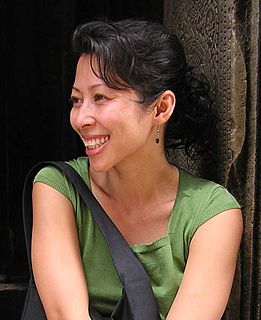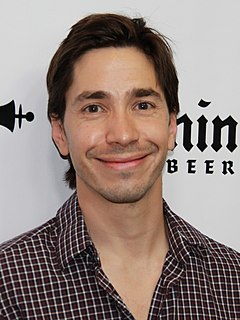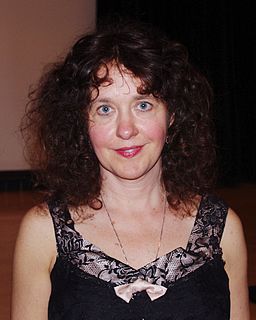A Quote by Jon Ronson
As I glanced at the phraseology of the research report, dull and unfathomable to outsiders like me, I thought that if you have the ambition to become a villain, the first thing you should do is learn to be impenetrable. Don’t act like Blofeld—monocled and ostentatious. We journalists love writing about eccentrics. We hate writing about impenetrable, boring people. It makes us look bad: the duller the interviewee, the duller the prose. If you want to get away with wielding true, malevolent power, be boring.
Quote Topics
Related Quotes
But I think writing should be a bit of a struggle. We're not writing things that are going to change the world in big ways. We're writing things that might make people think about people a little bit, but we're not that important. I think a lot of writers think we are incredibly important. I don't feel like that about my fiction. I feel like it's quite a selfish thing at heart. I want to tell a story. I want someone to listen to me. And I love that, but I don't think I deserve the moon on a stick because I do that.
That's one thing brands are understanding is, I'm the blogger who's not writing about fashion. I'm not writing about beauty. I'm not writing about gossip. I'm not writing about politics. I'm writing about all of that. I'm the person they can come to if they just want to reach people who care and have their fingers on pop culture.
I have my writing therapy. For me, writing and friends therapy is an internal journey where you go in deep, you reflect, you try to heal your inner child. But as an activist, there's the outward, going wide therapy, where you get to realize at a certain point that talking about yourself gets boring. And it's also unhealthy to be so much into yourself. At some point, you have got to be able to look at the issue and say, "It's not about you. It's about a culture, a people, a nation, a family."
One can write out of love or hate. Hate tells one a great deal about a person. Love makes one become the person. Love, contrary to legend, is not half as blind, at least for writing purposes, as hate. Love can see the evil and not cease to be love. Hate cannot see the good and remain hate. The writer, writing out of hatred, will, thus, paint a far more partial picture than if he had written out of love.
Writing fiction is very different to writing non-fiction. I love writing novels, but on history books, like my biographies of Stalin or Catherine the Great or Jerusalem, I spend endless hours doing vast amounts of research. But it ends up being based on the same principle as all writing about people: and that is curiosity!
Poets seem to write more easily about love than prose writers. For a start, they own that flexible ‘I’…. Then again, poets seem able to turn bad love – selfish, shitty love – into good love poetry. Prose writers lack this power of admirable, dishonest transformation. We can only turn bad love into prose about bad love. So we are envious (and slightly distrustful) when poets talk to us of love.
I'm a little nervous. Definitely. Especially coming from an album like Biophilia, which was about the universe. This is more of a traditional singer/songwriter thing. When I started writing, I fought against it. I thought it was way too boring and predictable. But most of the time, it just happens; there's nothing you can do. You have to let it be what it is.
I never want to feel complacent, and I had started to, a little bit. I had started to feel like "I have this thing I can do, it's worked a few times," but not only does that get boring, but you feel stagnant and unproductive. So I was feeling a lack of creativity and motivation, so I started making a more conscious choice to grow personally. It wasn't even an image-conscious thing, like, "I don't want people to think this way about me." It was really just a way to keep myself energized and feel excited about this thing I love doing. Like I went to couples therapy or something.
Writing is really just a matter of writing a lot, writing consistently and having faith that you'll continue to get better and better. Sometimes, people think that if they don't display great talent and have some success right away, they won't succeed. But writing is about struggling through and learning and finding out what it is about writing itself that you really love.
Writing, for me, when I'm writing in the first-person, is like a form of acting. So as I'm writing, the character or self I'm writing about and my whole self - when I began the book - become entwined. It's soon hard to tell them apart. The voice I'm trying to explore directs my own perceptions and thoughts.

































